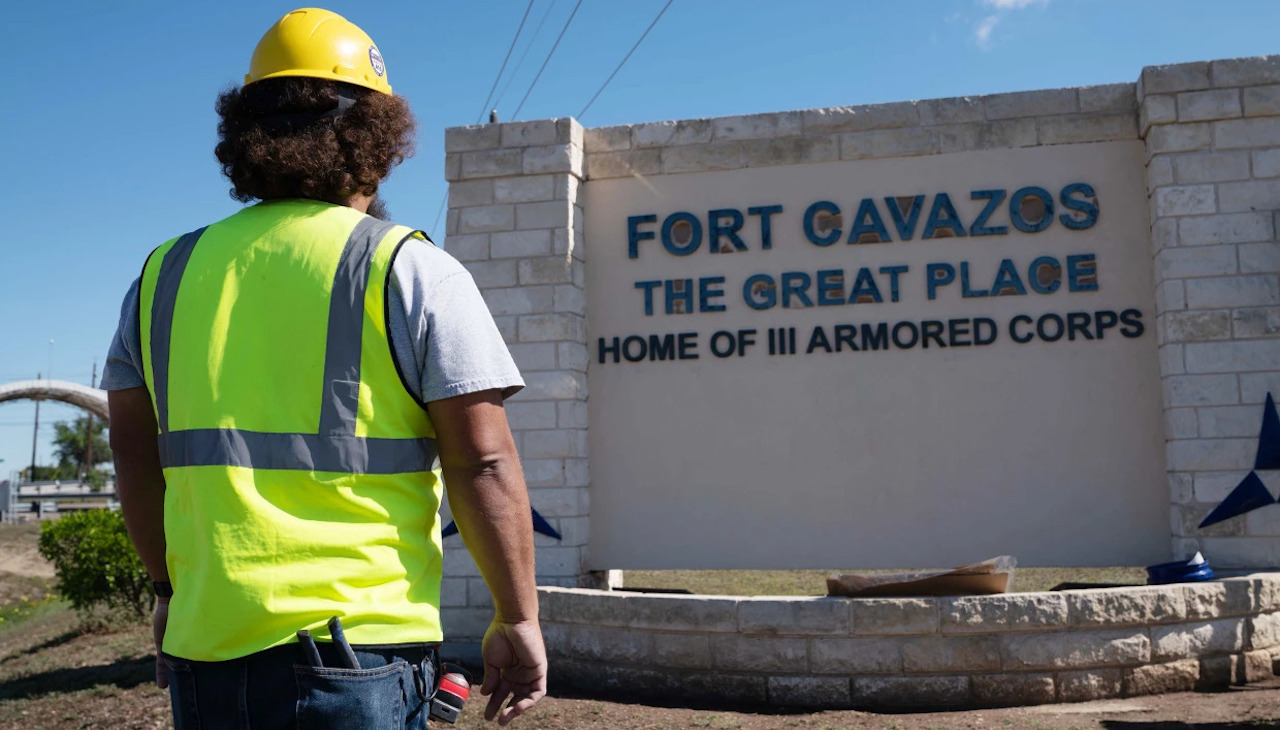
Fort Hood is no more. It’s now Fort Cavazos in Killeen, Texas
Back in October 2022, it was announced that Fort Hood, the U.S.’s third largest military base in Killeen, Texas would no longer go by the name honoring Confederate General John Bell Hood.
Instead, it would become the first U.S. Army base in the country that would honor a Hispanic servicemember. That man was Richard Edward Cavazos, the first Hispanic four-star general in U.S. Army history, and a man known for his heroics during the Korean War.
After an almost year-long process that began with a recommendation made by Congress’ new Naming Commission — created to rename U.S. Army bases that honor Confederate figures — Fort Hood officially became Fort Cavazos on Tuesday, May 9.
Who was Richard Edward Cavazos?
Cavazos the four-star general was born in Kingsville, Texas in 1929. For college, Cavazos studied geology at Texas Tech University, graduating in 1951 and then went on to complete his basic officer training at Fort Benning, Georgia.
He was then deployed to Korea, where he served as a platoon leader and member of the 65th Infantry Regiment — also known as ‘The Borinqueneers,’ for its majority Puerto Rican makeup. Cavazos was Mexican-American, and went on to receive both the Silver Star and Distinguished Service Cross for his heroics leading on the battlefield.
In the Vietnam War, Cavazos was lieutenant colonel and then attained the rank of commander. His heroics there, specifically at the first battle of Loc Ninh, earned him another Distinguished Service Cross.
After Vietnam, Cavazos continued serving as a commander until making his first history in the U.S. Army as a Hispanic servicemember. In 1976, he became the first Hispanic servicemember to reach the rank of brigadier general in U.S. Army history.
Six years later, he would finally be named the first Hispanic four-star general in U.S. Army history. Cavazos would retire from the military on June 17, 1984.
That history-making also ran in his family, as his brother, Lauro Cavazos, would become the first Hispanic ever appointed to a presidential cabinet in 1988. President Ronald Reagan made Lauro his Secretary of Education and George H.W. Bush would keep him there as part of his own administration until Lauro resigned in 1990.
CONTENIDO RELACIONADO
In response to the base now officially going as Fort Cavazos, U.S. Rep. Joaquin Castro — one of the legislators at the front of the push for a name change — honored the Hispanic servicemember’s legacy in a tweet.
“Today, Fort Hood was renamed for San Antonio’s Richard Cavazos – the first Mexican American to reach the rank of four-star general in the Army,” Castro wrote. “Gen. Cavazos inspired generations of troops with his integrity and courage. Starting today, Ft. Cavazos proudly bears his name.”
For the newly-named Fort Cavazos, it also potentially marks a new beginning for a base that’s seen more than enough tragedy and scandal over the last decade-plus.
In 2009, a mass shooting took 13 lives and injured 32, and another plot in 2011 was foiled. More shootings rocked the base in 2014, but since then Fort Hood (now Cavazos) has sat at the center of discussion around sexual assault and harassment on U.S. Army bases.
A sergeant was discharged in 2014 for running a prostitution ring, but real waves began in 2020 after the disappearance and murder of Vanessa Guillén, who was killed by a fellow servicemember. Before her disappearance, Guillén told family members that she was being sexually harassed by an unnamed sergeant at the base.
The resulting investigation into Guillén’s case shook the U.S. Army and its culture to its core. It not only disciplined 14 commanders and other leaders at the base for “leadership” failures, but also got Congress involved to pass parts of the I Am Vanessa Guillén Act as part of a bigger bill. It brought more protections for victims of sexual violence.










DEJE UN COMENTARIO:
¡Únete a la discusión! Deja un comentario.